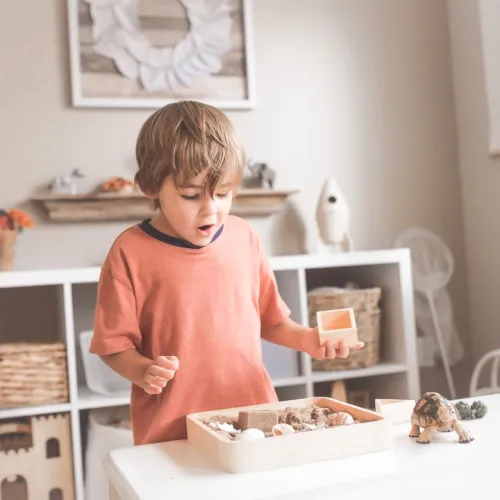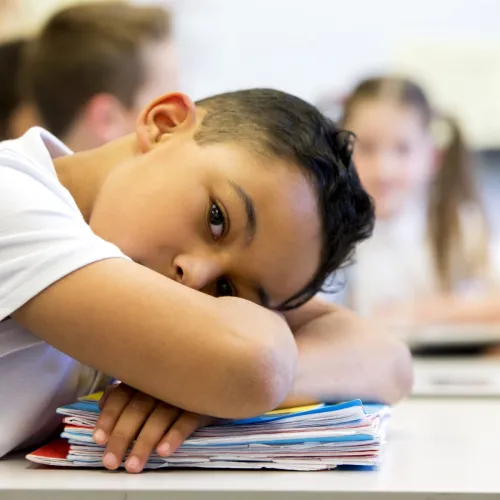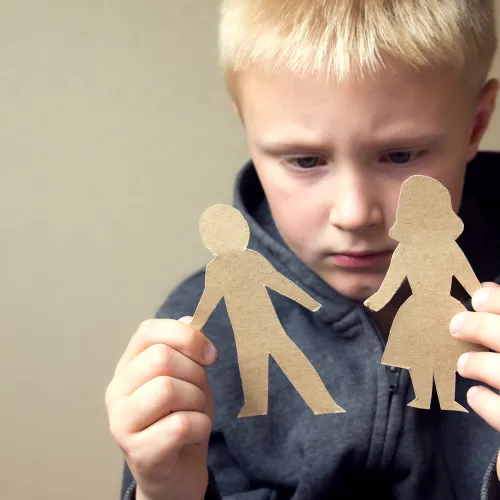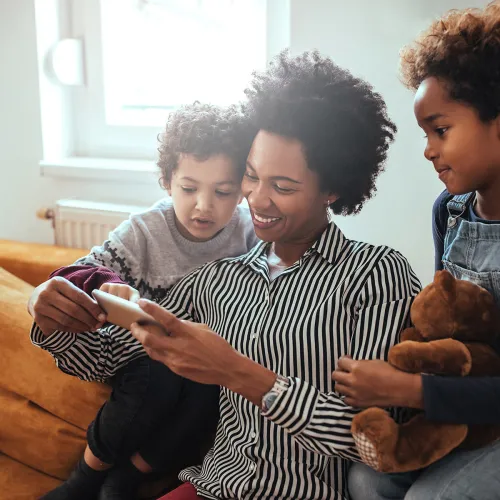8 Rights Every Child Deserves After a Divorce

For any parent going through a divorce or separation, there will be countless sources of stress throughout. Moving homes, splitting assets, determining a parenting agreement, and coping with emotions is exhausting.
While it might feel at times like you and your co-parent cannot agree on anything, there is at least one thing you must agree on: to keep your children and their wellbeing at the centre of any actions you take or decisions you make during this time.
But what does that mean for your day-to-day life? How can you and your co-parent stay on the same page about what it means to put your kids first?
To get you started, it can be helpful to begin by thinking about the basic rights every child deserves after their parents' divorce. By using these basic rights as motivation for every action and decision, you can be a little more certain that your child's wellbeing is remaining at the centre.
The right to be a child
Every child deserves the right to be just that: a child. Childhood is precious, and parents should do all that they can to provide their child with the basic right to a happy and healthy childhood.
The right to a relationship with both parents
If both parents are a healthy presence in a child's life, they deserve the opportunity to maintain a loving relationship with them both. The other adults in that child's life should never take away or hinder the opportunity to have this connection.
The right to relationships with extended family
Every child deserves the right to stay connected with beloved extended family members without having to choose sides. Parents should never try to influence their child's feelings about their extended family.
Beyond not working against their relationship, co-parents should even consider taking an active role in helping their children maintain those connections. Sometimes it takes the involvement of both parents to make sure their child's relationships with the other side of their family stays strong.
The right to live free of conflict between parents
Every child deserves to live free from being burdened by any conflict or tension between their parents. Try to always work together to shield your child from this.
This can mean temporarily containing your communication in a closed system, one that prevents children from accidentally accessing or overhearing heated conversations. When conflict is an issue, consider putting text messaging and phone calls on pause. Relying on a co-parenting platform, like OurFamilyWizard, will help you get a handle on any sticking points in your communication while simultaneously protecting your kids from being put in the middle.
The right to not be a messenger
In addition to being protected from conflict, every child deserves the right to be free from acting as a messenger between their parents. Even if communication is without conflict, when parents put the burden of conveying information on the child, they are unfairly saddling them with adult responsibilities.
Parents should instead seek a means of communication that promotes effective, clear exchanges of information.
The right to not be a sounding board
Every child deserves to be free from acting as a sounding board or "therapist" for either parent. They should never be made to carry additional emotional weight.
Even if parents remain conscious of what they speak about with their children, kids are still likely to notice when their parents are feeling sad, stressed, or angry. To prevent young children from worrying about adult matters and responsibilities, help them develop coping mechanisms to handle worries.
The right to express their true feelings
Children have the right to their feelings about the divorce. They should be free to communicate how they feel to both of their parents without guilt or fear. Parents should show their child how loved they are, listen to what their child says with full attention, and do all they can to offer the support their child needs to work through their emotions in a healthy way, even if that means enlisting the help of a professional.
The right to stability
Every child deserves the right to maintain a style of life similar to before the divorce. If big changes cannot be avoided, the child deserves the right to know what will change in advance, whether it be a move, change of schools, or even remarriage of a parent.
Even if you understand and agree with these eight basic rights that every child deserves after divorce, putting them into practice will require commitment and diligence. Stay dedicated to your communication, try different solutions, and remain open to new strategies. Parallel parenting is another option to help you ease into shared parenting with additional boundaries. No matter how you approach it, remain focused on providing your children with these basic rights. It'll give you a solid foundation for giving them a happy childhood in a healthy environment.



